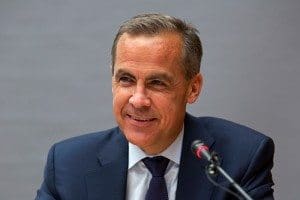
Morgan Stanley exit deals blow to Mark Carney’s Net Zero Banking Alliance
Mark Carney’s flagship initiative to encourage the financial sector to reduce greenhouse gas emissions has suffered another setback after Morgan Stanley became the latest American lender to leave the Net Zero Banking Alliance.
The US investment bank follows other Wall Street stalwarts, including Goldman Sachs, Citigroup and Bank of America, in departing the group over recent weeks.
Their exits deal a blow to the coalition, which is part of the broader Glasgow Financial Alliance for Net Zero co-chaired by Carney, the former governor of the Bank of England. Carney launched the alliance in April 2021 to galvanise banks, insurers, and asset managers into scaling back funding for high-emission projects and investing in cleaner alternatives.
However, Morgan Stanley insists it remains committed to its net zero goals, pointing out that its mission to decarbonise the “real economy” by advising and financing greener business models continues unabated. The bank did not specify why it withdrew.
The Glasgow alliance has faced growing pressure from Republican politicians in the United States, who have denounced net zero initiatives as harmful to the energy sector and broader economic interests. This opposition has already led insurers and asset managers to quit parallel climate groupings that sit under the alliance’s umbrella.
Carney, who left the Bank of England in 2020, originally hailed the group as a breakthrough in mobilising climate finance, designed to steer the world’s largest financial institutions towards supporting the transition to a net zero economy. Yet the recent spate of high-profile departures underlines the political and commercial challenges that remain.
Read more:
Morgan Stanley exit deals blow to Mark Carney’s Net Zero Banking Alliance


